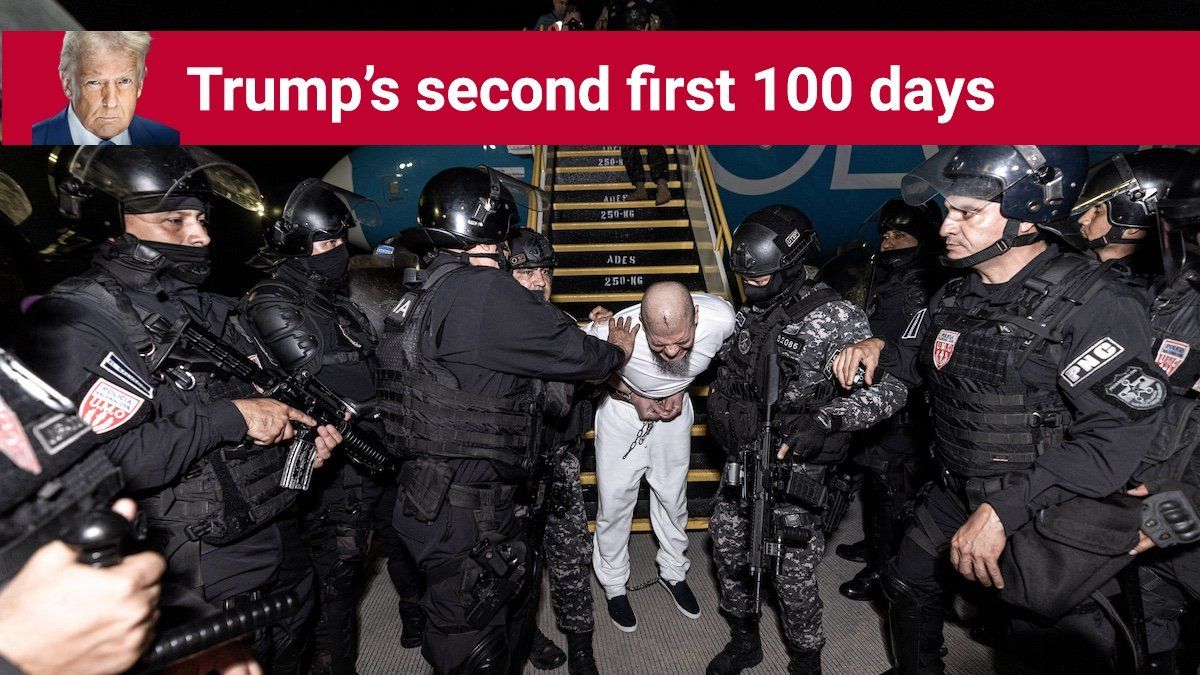President Donald Trump’s actions against migrants have generated among the most controversy of any of his policies during the first few months of his presidency. His administration’s deportation of alleged Venezuelan gang members to a Salvadoran maximum security facility has drawn comparisons to the worst abuses of totalitarian regimes, and Trump’s approval rating on immigration issues has slipped a bit in several polls.
Here’s a brief rundown of three of the most salient actions Trump has taken on migration.
1. Mass deportations of alleged criminal migrants
In March, the Trump administration defied court orders to remove over 200 Venezuelan migrants whom it alleged – without providing proof or due process – were criminals without legal status in the United States. The White House claimed it had the authority to do so thanks to the 1789 Alien Enemies Act, which it invoked to target the Tren de Aragua, a gang it alleges to be conducting “irregular warfare and undertaking hostile actions against the United States.”
The Supreme Court ruled on April 8 that while the administration could use this act to deport alleged gang members, it must provide them the opportunity to challenge their removals in court first. Eleven days later, it ruled that the administration must halt deportations under the Alien Enemies Act pending a further ruling from the court. The White House derided challenges as “meritless litigation” – even though it admitted in one case, that of Kilmar Abrego Garcia, it mistakenly deported him to a potential life sentence in El Salvador. Despite another Supreme Court ruling that the administration must facilitate his return to the United States, the administration says it cannot retrieve him from El Salvador.
2. Executive Order “Protecting the American People Against Invasion”
Trump issued this broad executive order, aka PAPAI, within hours of his inauguration. It revokes several Biden-era executive orders related to immigration and attempts to further the crackdown Trump promised on the campaign trail.
For example, it removed restrictions on immigration authorities attempting to make arrests at sensitive locations like churches, schools, or certain workplaces. It urges state and local law enforcement to aid in immigration arrests, which are usually outside their jurisdictions, and threatens so-called sanctuary cities with the loss of federal funds if they do not assist. The order also mandates the creation of “Homeland Security Task Forces” in each state, reporting to the Departments of Justice and Homeland Security. These task forces are meant to marshall more manpower and resources to make arrests, but the White House has expressed frustration with the pace of detentions.
3. Militarized border protection
In another executive order signed on his first day in office, Trump declared a national emergency on the southern border, enabling military forces to take a greater role in securing the region. He also assigned the Roosevelt Reservation, a 60-foot wide strip of land running along much of the border from New Mexico to California, to the Defense Department. DoD has announced it will administer part of the reservation as a section of Fort Huachuca, a military base in Arizona. Doing so will allow military personnel to put up barriers and make arrests as part of their security duties, but those actions are likely to be challenged in court.
Despite – or perhaps because of – the crackdown along the border, apprehensions are way down compared to the Biden administration. Authorities detained just 11,017 attempted migrants along the southern border in March 2025 compared to 189,359 in March 2024.
